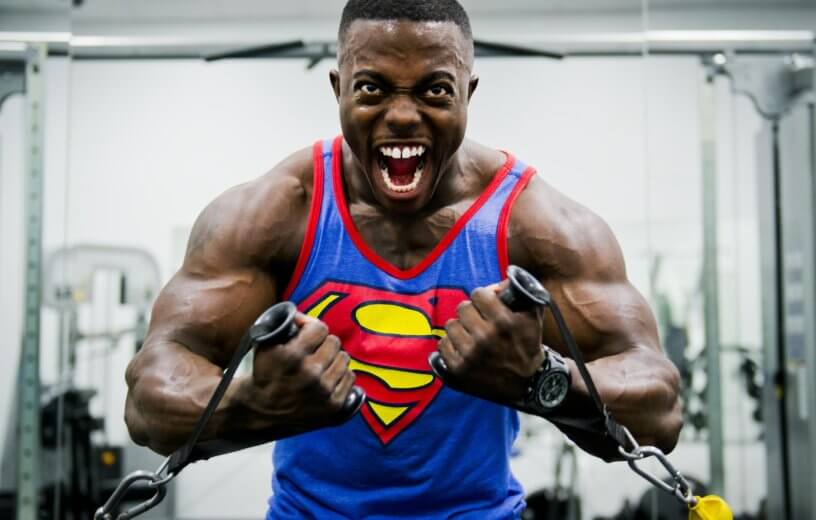AARHUS, Denmark — Perhaps a man’s love for his guns really does say something about his political views. We’re not talking about those guns, though. A new study finds that muscular men are more likely to support an unequal society and a more conservative distribution of resources.
Researchers from the School of Business and Social Sciences at Aarhus University in Denmark say that where a man stands politically may tie into his “Stone Age mind.” In the early days, physical strength and prowess played a major role in the status of ancient men, mimicking an animalistic type of hierarchy. The strongest were more likely to have powerful roles in their communities and enjoyed a greater share of resources; so an equal society and a more equal sharing of those resources was a threat to a man’s rank among his peers. The authors say that the mindset of men today still latch on to that primitive behavior.
“Today, physical strength is highly unlikely to affect how big a share of society’s resources you are able to acquire. However, our data shows that physical strength nonetheless continues to affect men’s political attitudes towards redistribution,” says study co-author Lasse Laustsen, an associate professor at the university, in a release.
That attitude may explain why some men might support larger gaps in income inequality even if they’re struggling financially themselves. A more even distribution of wealth and resources would certainly be helpful to these individuals, but they don’t believe it’s to their advantage in the long run.
“Our analysis suggests that these men expect to be able to rise in the hierarchy on their own. And once they reach the top of the hierarchy, an unequal society will increase their chances of maintaining that position,“ explains Laustsen.
Adds Michael Bang Petersen, Laustsen’s co-author and a professor of political science at the school: “The results challenge the belief that our political views are formed by logic and reason alone. Instead, our views seemingly reflect intuitions produced by a Stone Age mind.”
For their research, the authors used data from 12 studies that included more than 6,300 people from numerous countries, conducted between 2012 and 2017. Participants were surveyed on their political attitudes and had their physical strength assessed. A previous study by Petersen showed support for an unequal society grew in relation to one’s total wealth, and decreased as one became more financially strapped. But in this latest work, a participant’s income was less of a factor.
“This study builds on a much larger data set, and our measurement of physical strength is more objective than in the previous study. In an international context, this is the most comprehensive study of its kind, and it shows a consistent positive correlation between men’s physical strength and their attitude towards inequality,” says Petersen. “We cannot rule out that men with right-wing attitudes are also more prone to go to the gym. That being said, however, there are strong indications that attitudes are actually shaped by physical strength and not the other way round.”
In fact, in one of the experiments in this latest work, participants were tasked with regularly building their upper-bodies over two months. During this period, the authors found their views towards inequality grew more favorable.
“The objective laboratory studies actually show a stronger correlation between physical strength and political attitudes than the respondents’ own subjective evaluations. This supports that raw physical strength is indeed the decisive factor,” says Laustsen.
The study’s findings did not extend to women.
The full study was published September 16, 2018 in the journal Political Psychology.
